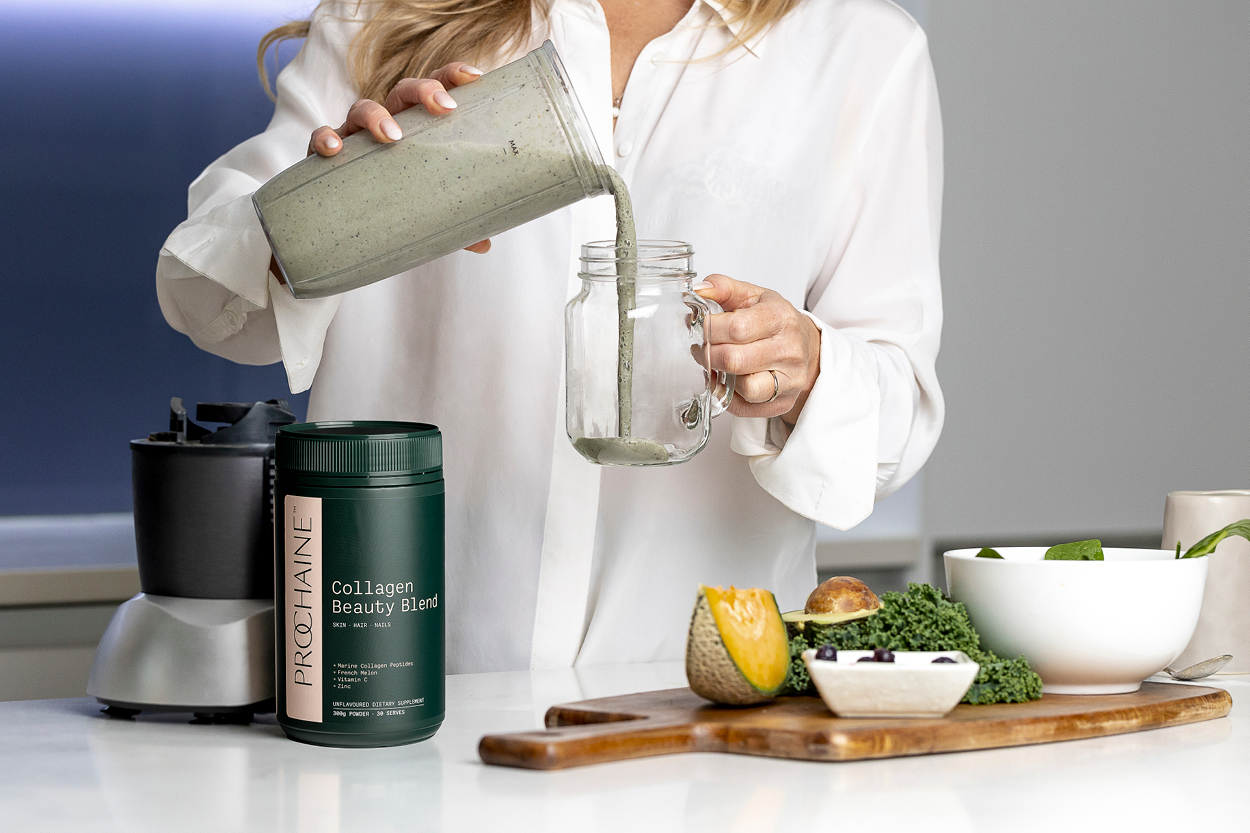by Dr. Sarah Mitchell Weston
While we’ve heard of the benefits of collagen supplementation on skin appearance and health, there is also evidence to suggest it has a positive effect on your immune system. With added vitamin C and zinc in its Beauty Blends, a daily dose of PROCHAINE might be just the thing to keep winter colds and flus at bay. Here, Nutritionist Sarah Mitchell Weston steps us through how to harness the power of collagen to bolster our immunity — just in time for winter.
Collagen Supports Your Gut
Did you know that 70% of your immune system is housed in the gut? It makes sense then that gut health and a strong immune system are closely linked. Optimal gut health relies on a diverse gut microbiome and strong gut lining. Collagen contains certain amino acids – in particular glycine, proline and glutamine – which are crucial for maintaining the integrity of the gut lining. Glutamine, in particular, is a key fuel source for the cells that line the intestines, known as enterocytes. These cells play a vital role in forming a barrier between the contents of your intestines and the rest of your body. When this barrier is compromised, it can lead to leaky gut syndrome, allowing harmful substances to enter your bloodstream and trigger inflammation and immune responses.
Collagen Speeds Up Healing
Ever notice how your skin feels stronger and more elastic when you use collagen? That’s because it’s a major component of connective tissue. When you have a wound or injury, your body needs to repair and rebuild the damaged tissue. Collagen plays a crucial role in this process by providing structure and support to the new tissue forming at the site of the injury. It acts as a scaffold for other cells involved in wound healing, such as fibroblasts, which produce additional collagen and other proteins necessary for tissue repair. Additionally, collagen helps regulate the inflammatory response and promotes the formation of new blood vessels, which are essential for delivering oxygen and nutrients to the healing tissue.

Vitamin C is essential for a strong immune system
Also known as ascorbic acid, vitamin C is a powerful antioxidant that plays a crucial role in supporting the immune system. It helps stimulate the production and function of white blood cells, which are your body’s first line of defence against infections. White blood cells, such as lymphocytes and phagocytes, rely on vitamin C to effectively identify and destroy pathogens like bacteria and viruses. Additionally, vitamin C enhances the function of various immune system components, such as the skin’s barrier function and the production of antibodies, which are proteins that recognise and neutralise harmful invaders.
And so is zinc…
Zinc is an essential mineral that plays a crucial role in various aspects of the immune system. It’s involved in the function and development of immune cells, such as white blood cells and T-cells, which are key players in fighting off infections. Zinc also helps regulate the production of cytokines, which are signalling molecules that coordinate the immune response. Additionally, zinc is necessary for the maintenance of the skin and mucous membranes, which act as physical barriers against pathogens. Overall, zinc supports immune function by enhancing the body’s ability to mount an effective defence against harmful invaders.







